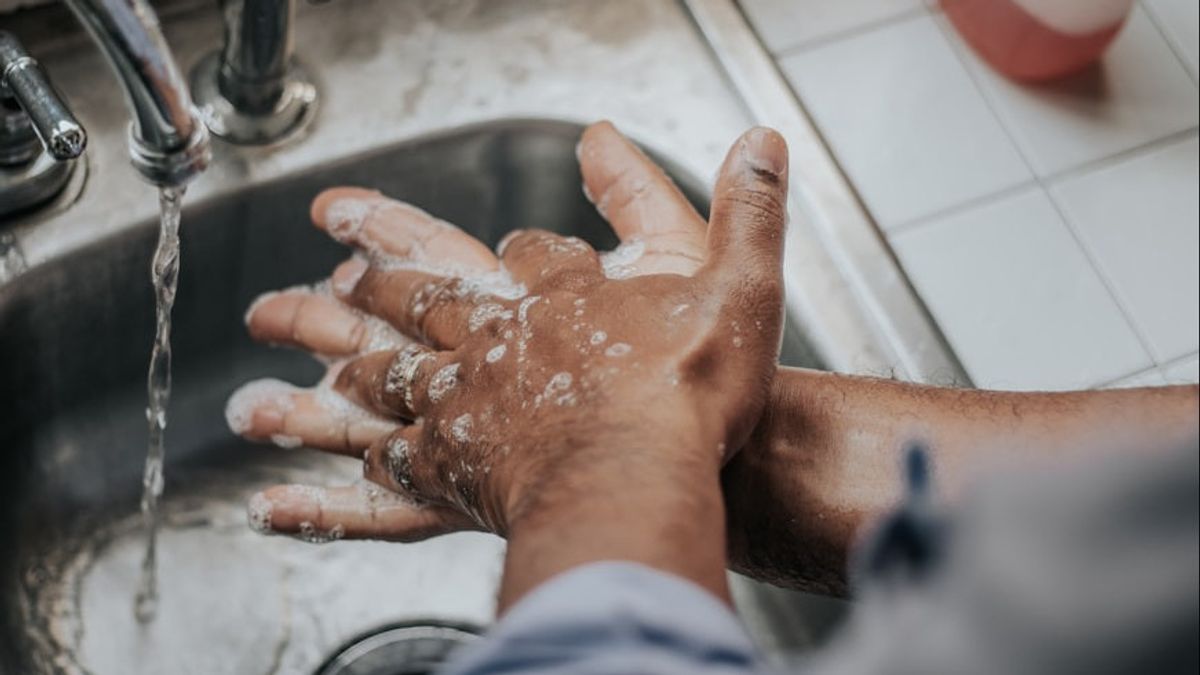
JAKARTA - Every year on October 15, the world commemorates World Handwashing Day. This day is specifically to highlight the importance of washing hands with soap and water at home, in society, and around the world.
This year's World Handwashing Day theme is 'Our Future is at Hand – Let's Move Forward Together.' Washing hands with soap and water is one of the best steps we can take to prevent disease and spread the disease to others.
World Handwashing Day was initiated by the Global Handwashing Partnership (GHP) in August 2008 at the annual World Water Week in Stockholm, Sweden. October 15 as World Handwashing Day was established by the United Nations General Assembly. 2008 is also the International Year of Sanitation.
The first World Handwashing Day was celebrated in more than 70 countries. More than 120 million children worldwide participated that year. All children wash their hands with soap. Since then, people have commemorated the day to spread awareness about “washing hands, making sinks and faucets, and demonstrating the simplicity and value of clean hands.”
Hand washing with soap and water is not only simple and inexpensive, it can dramatically reduce the number of sick young children. Teaching people about hand washing helps them and their communities stay healthy.
Citing the CDC, washing hands with soap and water reduces the number of people who get sick with diarrhea by about 23-40 percent. In addition, hand washing also reduces children's absence from school due to gastrointestinal diseases by 29-57 percent, reduces diarrheal disease in people with weakened immune systems by about 58 percent, and reduces respiratory illnesses, such as colds, in the general population by about 16– 21 percent.

As mentioned earlier, hand washing is the easiest thing to ward off germs and viruses, as well as the most effective. Hand washing is one of the most efficient preventive measures in the fight against the Ebola virus in Africa. To avoid virus contamination, it is imperative to wash your hands before or after doing an activity.
Hand washing is the most effective in the fight against Ebola because it actually targets the areas where the microorganisms that make humans sick. The area between the fingers, then the thumb, and the knuckles. Proper hand washing steps make all areas of the hands clean.
The COVID-19 pandemic also reminds us of the importance of hand washing. In response to the COVID-19 pandemic, the Global Handwashing Partnership launched the WASH Viruses Away advocacy campaign to galvanize hand hygiene efforts. Washing hands with soap along with other public health measures such as maintaining physical distance, avoiding crowded places, practicing cough etiquette and wearing masks are known to be our best defenses against the COVID-19 virus.
"Handwashing has always been one of the most effective ways to prevent disease. It is a simple act to keep ourselves healthy and safe. Hand washing is also one of the main pillars of COVID-19 prevention. Now, more than ever as we face the new normal and living with COVID-19, hand hygiene needs to be an integral part of our daily routines and lives," said Dr Poonam Khetrapal Singh, WHO Regional Director Southeast Asia Region.
*Read other information about TODAY's HISTORY or read other interesting articles from Putri Ainur Islam.
Other BERNASThe English, Chinese, Japanese, Arabic, and French versions are automatically generated by the AI. So there may still be inaccuracies in translating, please always see Indonesian as our main language. (system supported by DigitalSiber.id)











